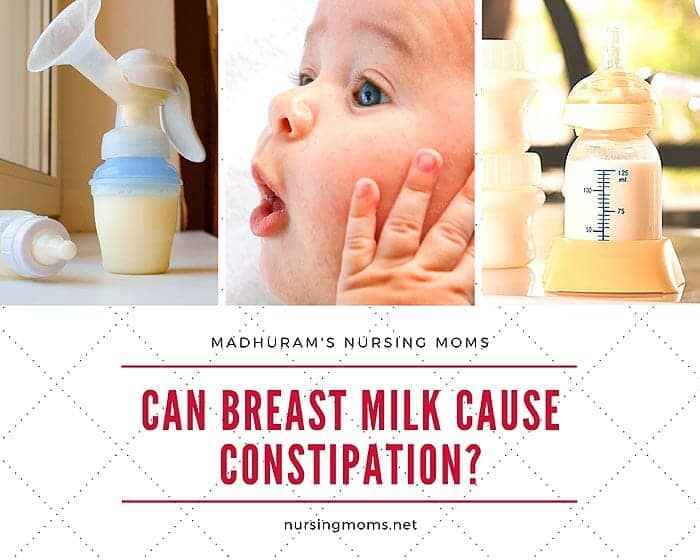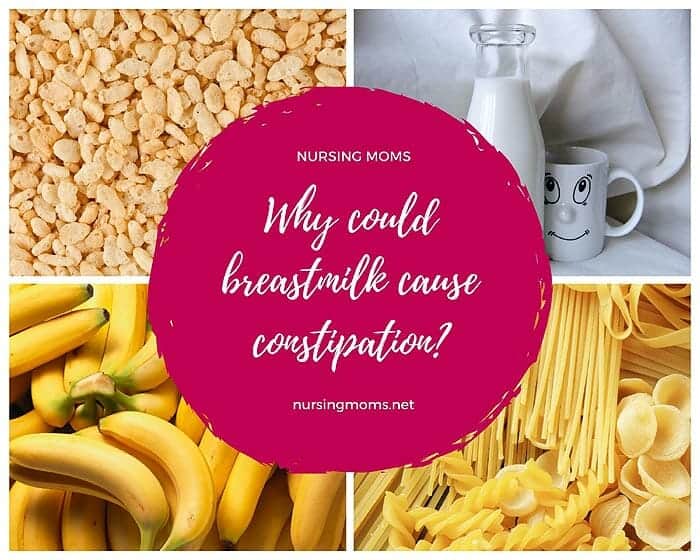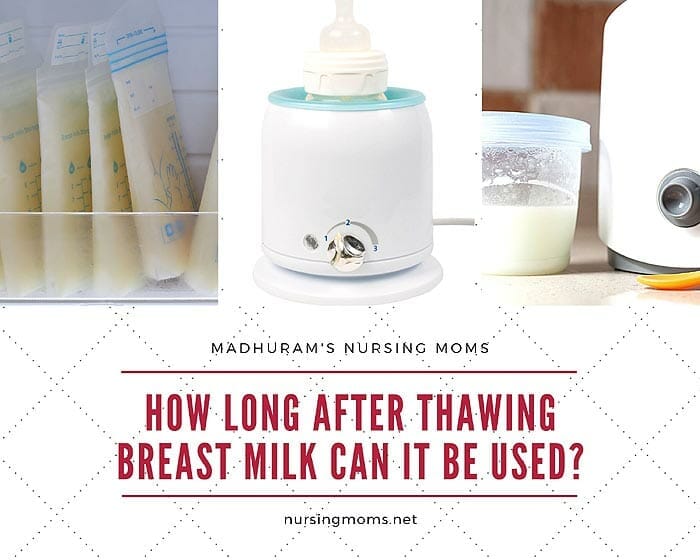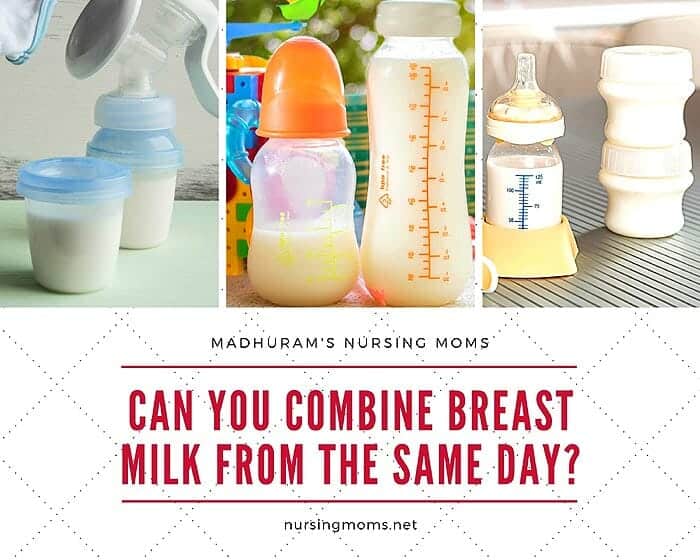
Can Breast Milk Cause Constipation? Breastmilk is the best food for a baby in the first six months of life, and many mothers choose to keep nursing their babies way past this milestone. Besides the fact that babies benefit from breastmilk a lot, there are no risks involved in it either. Breastmilk acts like a natural laxative, and it is very easy to digest for your baby.
With that being said, constipation is not a common side effect in babies[1] that are breastfed exclusively. But that doesn't mean that it can't happen. Some babies might experience signs of constipation now and then, even if their diet is exclusively based on breastmilk. In addition, other factors could contribute to this condition.
Jump to:
Why could breastmilk cause constipation?

In general, a nursing mother can eat everything she wants in moderation. However, few babies will experience constipation in their first six months of life while breastfeeding exclusively.
One of the leading causes of constipation in babies that are breastfed is the diet of the mother. Certain foods can enter the breastmilk in a way that causes your baby to be constipated.
Therefore, if you eat these foods, they might be the culprit for your little one's upset stomach.
- Rice Cereal: Rice cereal and even all types of rice on the market will absorb liquid and make the meal more challenging to digest. If you eat rice regularly and you notice that your baby is constipated, you might want to turn to oatmeal for a change.
- Dairy: Cow's milk in particular and other dairy products can be the culprit for constipation. So, if you enjoy your glass of cow's milk every evening, you might appreciate the plant-based milk of your choice instead.
- Bananas: You can eat a banana now and then, but if you enjoy these delicious fruits often, they might be the reason your baby is constipated. Bananas add plenty of nutrients to the breastmilk, but constipation might be a side effect in some babies. You will not have to substitute your bananas with something else. Still, you might notice a difference if you reduce the quantity to one banana a day.
- A diet based on low-fiber foods: If your general diet doesn't contain enough fiber, both you and your baby could experience constipation. You can try increasing your veggie intake and reduce the carbs that come from pasta and bread, and you will most likely see a difference for both of you.
![]()
Symptoms of constipation in babies that are breastfed
If your baby experiences constipation, you will want to look for specific symptoms.
- Not all babies have the same schedule of bowel movements[2], and this can be confusing for parents. Because each baby is different, you will have to look for other signs of constipation rather than only their bowel movements.
- If your baby's belly feels firm or tight and their stools look hard and like little stones, these are good signs of constipation. Other signs might include crying during a bowel movement, refusing to eat, and even a bloodyy stool.
- Keep in mind that not all babies will react the same to constipation, so you will have to pay attention to changes in their behavior and the way they eat, and the type of bowel movement they have.
Suggested Reading:
![]()
When to talk to your doctor?
If your baby gets constipated now and then, you shouldn't panic. Every child is different, and factors such as heat, stress, or fussiness can also influence how they digest food.
- However, if you notice they have hard stools or bloody stools and get fussier than usual during their bowel movements for more than two days in a row, you will have to talk to their doctor.
- Also, if your baby refuses to eat due to this condition, you should talk to your doctor right away. A lack of fluids in babies will lead to dehydration, which can escalate to a serious condition in a matter of hours.
Suggested Reading:
![]()
Treatment for constipation in breastfed babies
Once you go to your doctor, they will examine your baby and ask you close questions regarding your diet. If the constipation is due to a medical condition and not your diet, the chances are that you will have to get a treatment based on laxatives that is safe for nursing babies.
- You might also be advised to give them a belly massage several times a day to stimulate their digestive system and ease their bowel movements. You will have to move your hand gently over their tummy in a circular motion for one minute at a time. You can do it more as your baby might love this.
- If your baby is constipated due to something in your diet, you will be advised to replace that particular food with a better alternative.
- But keep in mind that constipation in breastfed babies exclusively due to the mother's diet is rare. Babies usually experience constipation once they start eating solid foods.
Suggested Reading:
![]()
Other causes of constipation in breastfed babies
Besides the actual breastmilk, constipation can be caused by other factors as well.
- For instance, if your baby spends a lot of time in the heat during long summer days, they might find it more difficult to have regular bowel movements. This is because heat can dehydrate the body and put a strain on the digestive system.
- These side effects are more frequent in infants as their digestive system is still developing. Constipation may also appear if you are traveling with your baby as the stress of changing location can also affect their bowel movements.
Suggested Reading:
![]()
Even if constipation is not typical for breastfed infants only, this doesn't mean that it can't happen. Each baby is different, and they have different development milestones. Also, the influence of external factors is essential for their well-being.
Make sure your baby is not exposed to heat for an extended period, and keep an eye on their bowel movement schedule to see if any changes appear.
![]()









Leave a Reply